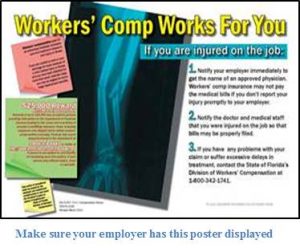When injured on the job, navigating the Worker’s Compensation system in Florida can be quite a daunting task. One of the most crucial decisions is whether to settle or take the case to trial (commonly referred to as a Final Merits Hearing). Keep in mind, if the case proceeds to trial, a Judge cannot award a monetary settlement rather medical or indemnity benefits. Regardless, either path has its own advantages and disadvantages, and understanding these can help one make an educated decision.
Understanding Worker’s Compensation in Florida
Florida’s Worker’s Compensation system is designed to provide benefits to employees who suffer work-related injuries or illnesses. These benefits include medical treatment, indemnity benefits, and last but not least compensation for permanent impairments. However, obtaining the aforementioned can be complex and sometimes contentious, leading to disputes between injured workers and their employers/insurance companies.
What is a Settlement?
A settlement is an agreement between the injured worker and the employer’s insurance company. When a settlement is entered into, one is essentially receiving a lump sum dollar amount, in exchange for closing the case, and waiving any rights to future claims related to the injury. Continue reading →
 Florida Injury Attorneys Blog
Florida Injury Attorneys Blog




